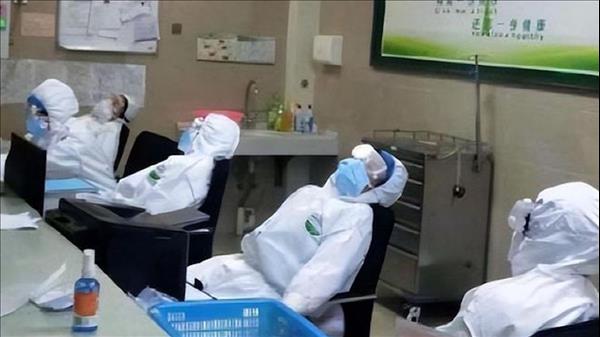(MENAFN- Asia Times) Foreign authorities are showing their concern over the explosion in Chinese Covid cases and taking steps to limit infection from Chinese travelers.
The European Union has“strongly encouraged” its members to impose Covid tests on passengers arriving from China, which has seen a sharp increase in infections over the past month.
Health experts of the EU's Integrated Political Crisis Response (IPCR) group said Wednesday that passengers from China should present a negative Covid test result before departure. They also said people on flights to and from China should wear face masks.
Japan said it would strengthen its Covid-19 border control measures by requiring any traveler from China to present a negative test result within 48 hours before departure. Since December 30, the country has required Chinese travelers to undergo Covid tests after arrival.
The United States, the United Kingdom, Canada, India, Italy, France and Spain have recently reintroduced Covid tests for Chinese passengers.
Beijing said it would take corresponding measures in response to varying situations, based on the principle of reciprocity.
As travel restrictions also covered Hong Kong, the city's government wrote to several consuls to ask them to drop unnecessary restrictions on its travelers.
Health experts said the daily infection in Hong Kong, which is set to welcome tens of thousands of mainland tourists beginning Sunday, could increase by more than 10-fold to 200,000 but the death rate would remain stable as long as there were no new deadly variants.
China on December 7 relaxed its Covid rules in a major policy shift in favor of living with the virus. In the succeeding weeks, it has reported exponential growth in Covid infections.
A document issued by the National Administration of Disease Control and Prevention (China's CDC) said about 248 million people, or 17.6% of the 1.4 billion population, had been infected between December 1 and December 20. Zeng Guang, the former chief scientist at the agency, said the ratio could have reached 40% as of December 29.
While Thailand, Singapore, Australia and New Zealand chose not to tighten their travel rules, Morocco and North Korea have reportedly banned all arrivals from China.
France said it would require any traveler from China to provide a negative test result less than 48 hours before departure from Thursday. On January 1, it called on the European Union to do the same.
Media reports said Tuesday that an“overwhelming majority” of EU nations wanted to impose systematic Covid tests on passengers arriving from China.
Mao Ning, a spokesperson of China's foreign ministry, said that the entry restriction measures some countries had taken against China were not science-based and that some of these measures were disproportionate and simply unacceptable.
Currently, China requires incoming travelers to quarantine at designated hotels for five days and stay home for another three days. After January 8, people are to be permittted to enter mainland China without quarantine but they still need to show negative PCR test results within 48 hours prior to departure. Those with fever will receive antigen tests at customs. Asymptomatic or mildly symptomatic patients can self-quarantine at home.
Italy, the first European country to be hit hard by the pandemic in early 2020, said last week that 97 of the total of 182 passengers on separate flights coming from Shanghai and Beijing on December 24 had tested positive for Covid-19. It later said no new Covid variants were identified.
The European Center for Disease Prevention and Control said Tuesday that China had deposited 540 Covid sequences in GISAID, a public database based in Germany, between December 25 and Decmber 30, compared with only 52 in the period December 1-24.
It said the common strains in China included BA.5.2 (35%), BF.7 (24%), BA.2.75 (5%) and BA.2 (2%), as well as BQ.1 (18%) and XBB (4%), which are now dominant in the West. It said no new variant had been detected so far.
According to thepaper.cn , 369 of the Covid sequences newly deposited by China were done by a research team at the Ruijin Hospital, Shanghai Jiaotong University School of Medicine.
Between November 23 and December 22, the team collected samples from 378 Covid patients in Shanghai and obtained 369 sequences. Among them, BA.5.2 represented 35% of all samples while the highly infectious BQ.1, nicknamed Hellhound, accounted for 30%.
However, the team said none of these 369 sample contributors were feverish or had other serious symptoms. It did not explain why it did not collect samples from seriously ill patients or the deceased.
On Tuesday, South Korea said 61 people, or 19.7% of the 309 passengers from China, tested positive. It said it would require travelers from Hong Kong and Macau to provide a pre-departure negative test result from Saturday. Prior to this, it decided to impose the rule on mainland travelers from Thursday.
Hong Kong's Chief Secretary Eric Chan on Tuesday sent letters to the consuls general of several countries to ask them to reconsider and remove the restrictions imposed on Hong Kong's travelers. Chan said these measures were unnecessary and inappropriate as Hong Kong had built a relatively comprehensive anti-epidemic barrier with high vaccination rates.
Jin Dongyan, a virologist in the Department of Biochemistry at the University of Hong Kong, said Hong Kong would probably report 150,000 to 200,000 infections per day after January 8. But he believed that such a trend would not create new risks to the city's medical system.
Executive Council member Jeffrey Lam said about 40,000 to 50,000 people would be allowed to travel across the Hong Kong-mainland border per day from Sunday. On Wednesday, Hong Kong reported 16,423 new Covid cases and 63 deaths.
read: 40% of chinese infected with covid in last month
Follow Jeff Pao on Twitter at @jeffpao3




















Comments
No comment